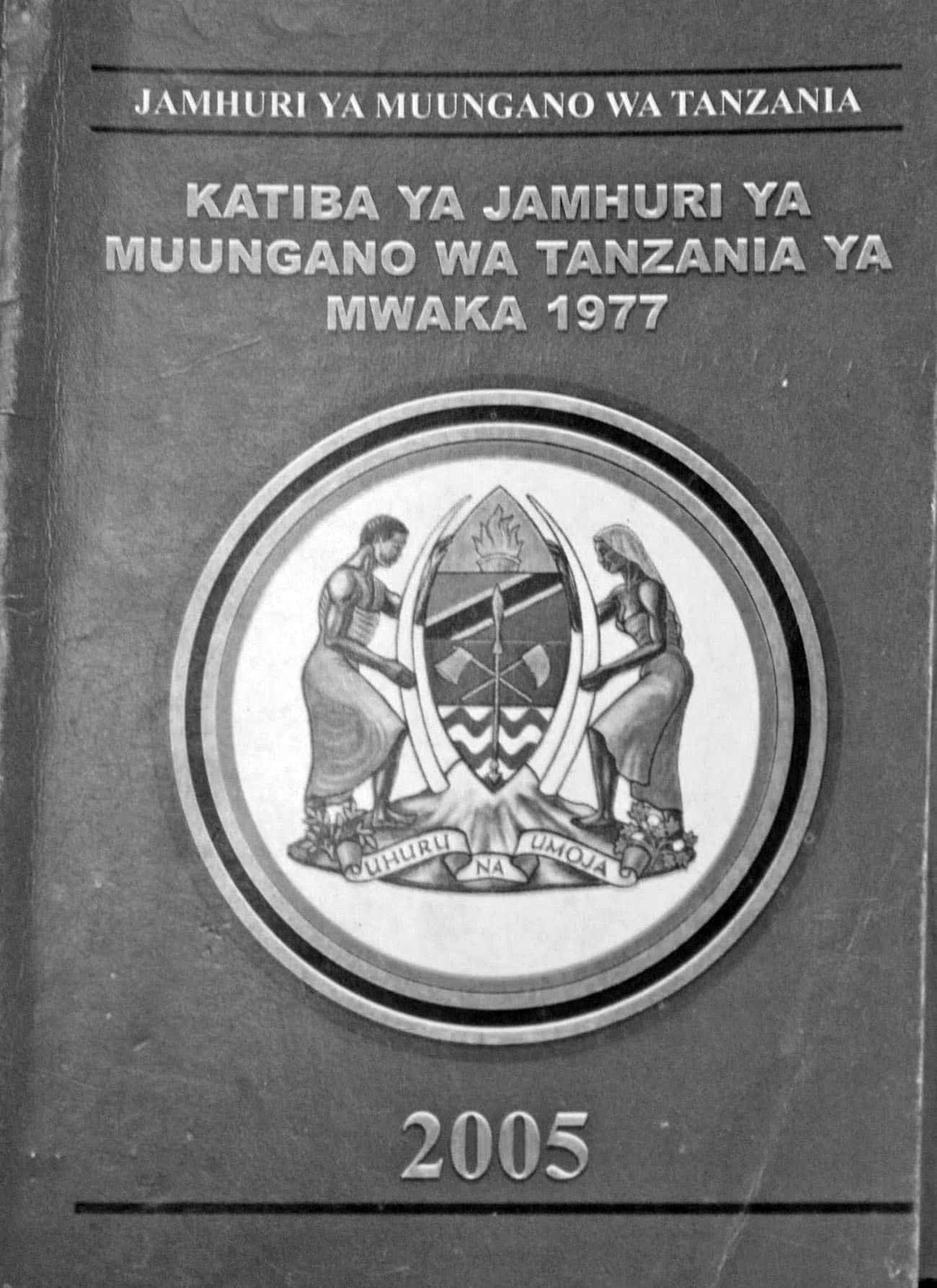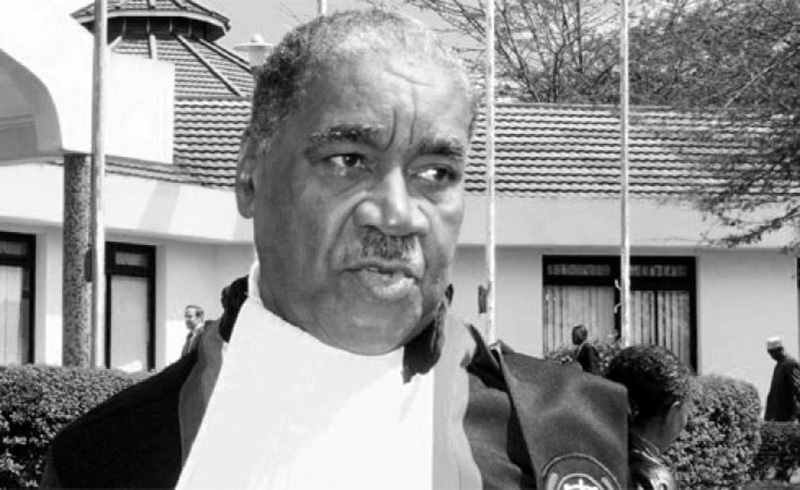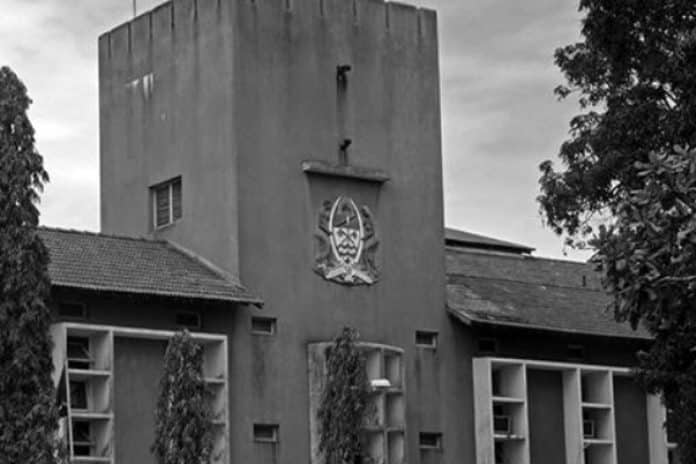High Court of Tanzania – Court of Appeal, Divisions, History, Powers and More
Zanzibar and Tanganyika merged to establish the United Republic of Tanzania in 1964. Following the Treaty of Union, the two states maintained their separate legal systems, entailing court structures. The Tanganyika High Court, whose jurisdiction is limited to the Tanzania Mainland (previously Tanganyika), was renamed the High Court of Tanzania in the Constitution of 1977 of the United Republic, but Zanzibar’s High Court retained its old name. It is important to remember that the High Court of Tanzania’s territorial jurisdiction is limited to legal issues that arise on the Tanzanian mainland, whereas the High Court of Zanzibar only has territorial jurisdiction on the legal issues that arise on the island of Zanzibar.
The United Republic of Tanzania’s courts, which include the Superior courts, subordinate courts, and the special constitutional court, constituted only when a constitutional conflict arises between the Tanzania Mainland and Zanzibar, are organized in a simple and unambiguous hierarchy. Despite open differences in the nature and interpretation of the Union, a special Constitutional court is yet to be established in the Union’s history. The municipal and Constitution legislation of Tanzanian Mainland and Zanzibar established the United Republic of Tanzania’s courts. The High Court of Tanzania has three divisions on the Tanzanian mainland: the Commercial Division (Commercial Court), the Division of Labour (Labour Court), and the Division of Land (Land Court).
Zanzibar, however, has only a single division in the High Court of Tanzania and is in the process of establishing a Commercial Division. Zanzibar’s High Court maintains registries in Zanzibar and Pemba; however, the Pemba registry lacks a resident judge. Tanzania’s High Court maintains registries in Tabora, Mtwara, Mbeya, Dodoma, Dar es Salaam, Moshi, Bukoba, Arusha, Tanga, and Iringa with resident judges in each.
The Court of Appeal
The Court of Appeal, that is a true union institution because it has territorial jurisdiction of the appeals from High Court of Tanzania and Zanzibar’s High Court, is the highest court in the United Republic of Tanzania
The High Court of Tanzania’s Divisions
All commercial issues are handled by the Commercial Court. The High Court Registries 1984 Rules were amended to establish this Court. The fundamental goal of establishing the court was to oversee prompt resolution and effective management of commercial disputes in order to promote corporate development and foreign investment growth in a free market economy.
The Labour Court is in charge of hearing and deciding on labor issues. It was first launched and inaugurated in 2007 June under the Labour and Employment Relations Act.
The Land Court was created due to the Land Act of 1999, which implemented land reforms. The Land Court had sole jurisdiction over land disputes involving TZS 50,000 or more in value until 2010. The efficient and timely disposition of cases was hampered by a lack of appropriate manpower, including judges, and the huge number of cases submitted in the Land Court. As a result, Tanzania’s Chief Justice, Augustino Ramadhani CJ, expanded the authority to handle land cases to all High Court judges in 2010.
History of the High Court of Tanzania
The High Court of Tanzania was formed by Article 108(1) of the United Republic of Tanzania’s Constitution. It was founded under article 17 (1) of the Tanganyika order in council, 1920, and is the forerunner of the Tanganyika High Court and present Tanzania.

By virtue of chapter 358 RE:2002, section 2 (1) of the Judicature and Application of Laws Act, the High Court of Tanzania is designated as a superior court with complete jurisdiction. It has evolved into a different organization than before, with the ordinary court and 2 special sections, the Labour Division and Commercial Division. It is, however, subject to the Court of Appeal’s jurisdiction, as set forth in the constitution and in any other available written laws.
The High Court of Tanzania is sometimes known as a court of record because it is mandated to preserve records of its proceedings and can penalize or imprison people, but it can also arbitrate conflicts on inland waters and high seas as a court of admiralty.
Composition of the High Court of Tanzania
The High Court of Tanzania, which is based on the United Republic of Tanzania’s constitution, is made up of the chief judge and at least 30 additional judges.
The president appoints judges of the High Court of Tanzania after consultation with the Judicial Service Commission created under part 3 of the constitution, based on the particular requirements mentioned in article 109 (7). Previously, the court’s judges had to be 15 or more, but that has changed recently to a composition of a minimum of 30 judges.

The Chief Judge’s special aide in the administration of the High Court of Tanzania and its subordinate courts is the principal judge. Article 109 (3) of the Constitution provides for this. In addition to the regular powers of a High Court judge, the principal judge has the authority to execute all tasks and functions that, according to legal tradition, should be done by the High Court’s chief justice.
Assessors can be thought of as a group of specialists tasked with deciding a legal matter. Assessors working in the divisions of the High Court of Tanzania must be skilled in the field of the matter and are chosen from a pool of experts that the specific court users committee presents to the court. Section 27 (4) of the Magistrates Courts Act states that in any appeal in which any customary law is relevant or at issue, the High Court can delegate any question pertaining to customary laws to the panel of experts, furthermore, section 265 of the Criminal Procedure Act of 1985 states that all criminal trials before the court must be conducted with the assistance of at least two assessors as the court deems necessary.
The High Court of Tanzania’s divisions are also correctly constituted if presided over by one judge assisted by two assessors; however, if both parties involved in the case reach an agreement, the commercial court judge can preside over the case without involving the assessors.
Jurisdiction of the High Court of Tanzania
The High Court of Tanzania has unlimited and full jurisdiction over all criminal and civil issues under section 2 (1) of the Judicature and Application of Laws Act, which means it has power over all matters not expressly given by any law or the constitution. It is also provided for in the United Republic of Tanzania’s constitution, Article 108(2). This jurisdiction is subject to the Court of Appeal’s jurisdiction, as defined by the constitution and other written legislation.
The High Court of Tanzania possesses original jurisdiction over all cases found outside the jurisdiction of the smaller courts subordinate to it, according to article 108(2) constitution and the requirements of the Judicature and Application of Laws Act. An example of High Court of Tanzania cases is where the worth of the subject matter exceeds that of the resident or district magistrate courts will be heard by the High Court. In addition, the High Court has original jurisdiction over all admiral and naval proceedings.
All offenses that are not triable by lower courts fall under the exclusive original jurisdiction of the High Court of Tanzania. Murder, treason, infanticide, manslaughter, inciting to mutiny, and a variety of other offenses are among those that incur the death penalty or life imprisonment.
The High Court of Tanzania has appellate jurisdiction over matters brought before it by lower courts, such as appeals from the Resident or district magistrate court. An appeal to the top court might be based on either legal or factual issues, or on both. An appeal can be criminal or civil in nature. “In the event that a case is presided over by a panel of over two judges, the decision shall be made based on the majority opinion of the judges,” says Section 72 of the civil procedure legislation.
Powers of the High Court of Tanzania
Review
Any individual who is aggrieved by an order or a decision to which an appeal is allowed but no appeal has been filed to request for a review of the decision or order issued by the presiding magistrate. In cases where a party does not have the right to file an appeal, a review may be requested so that a court can overturn its judgment. The applicant for review must establish that they discovered new or relevant items or evidence, as per Order 42 rule 1(b) of the civil procedure code. The judge to whom the application is made is able to change their mind at any time.
In the case of Wilson chuwa v Paul lema (1989), a high court judge reviewed his order in a matter originating from a suit to prevent a house from being sold at a public auction. The Court of Appeal ruled in an appeal that a judge has the authority to review their decision, but not to revisit it after it has been reviewed.
Revision and Supervision
The High Court of Tanzania has broad monitoring and revision powers over all resident magistrate and district courts in their appeal and original jurisdictions on issues originating in primary courts. When exercising this power, the high court may either request and inspect the record of proceedings, require any district court to request and inspect the record of any main court proceeding or alter any such proceeding itself.
According to the magistrate courts legislation, if there appears to be a mistake material to the merits of the case including injustices, the High Court of Tanzania can amend the proceedings and issue whatever conclusion it deems appropriate.
Conclusion
In the case of Shelukindo v Northern Tanzania Farmers Coop Society Limited, the court concluded, “The High Court of Tanzania is an organ whose existence and establishment are derived from the functioning of this country’s constitution.” Apart from the court of appeal, this organ has unrestricted civil and criminal jurisdiction, territorial and pecuniary authority unless otherwise limited by the legislation. It is the highest court for justice administration in Tanzania.
High Court of Tanzania Address – https://www.comcourt.go.tz/comcourt/contact-address/
For more articles related to Laws of Tanzania (Acts), click here!

































